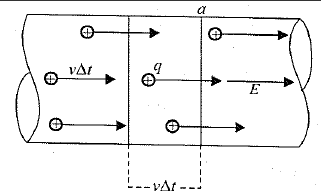Question
Question: The resistivity of Cu is \[0.015\mu \;ohm{\text{ }} - {\text{ }}m\]at \[300{\text{ }}K\]. Addition o...
The resistivity of Cu is 0.015μohm − mat 300 K. Addition of each atomic % of Ni and Ag causes an increase in resistivity by 0.012μohm−m and 0.16μohm − m respectively. Compute resistivity of Cu - Ni - Ag alloy at 300 Kwhen 0.25%Ni and 0.4 atomic % Ag is added to Cu

A. 0.082μ.ohm−m
B. 0.018μ.ohm−m
C. 0.006μ.ohm−m
D. None
Solution
We need to know the concept of resistivity and how the resistivity of an alloy changes with adding individual metals.
We should know how to convert a quantity in its percentage form.
Complete step by step answer:
An alloy is a combination of metal or metal combined with one or more other elements. For example, combining the middle elements gold, copper producer red gold.
Resistivity is the electrical resistance of a conductor of unit cross-sectional area and unit length. A characteristic property of each material, resistivity is useful in comparing various materials on the basis of their ability to conduct electric currents. High resistivity designates poor conductors.
Given, the resistivity of Cu at 300 K is ρCu=0.15μΩm while ranking alloy, addition of each aromatic % of Ni and Ag causes an increase in resistivity by 0.012μohm−m and 0.16μ.ohm−m respectively.
The increase is resistivity by addition of 0.4% Ag is.
ρAg=0.16×0.4 ρAg=0.064μΩ−m
The increase in resistivity of Ni by addition of 25% Ni is,
ρNi=0.012×0.25 ⇒ρNi=0.003μΩ−m
Thus, the resistivity of alloy is
ρalloy=ρCu+ρNi+ρAg ⇒ρalloy=0.015+0.003+0.064 ⇒ρalloy=0.082μΩ−m
So, the correct answer is “Option A”.
Note:
The total resistivity of can be calculated by the addition of the resistivity of Cu, Ni and Ag. Thus it is proved from the above solution.
We should take care of units. All the same quantities should have the same order of unit.
